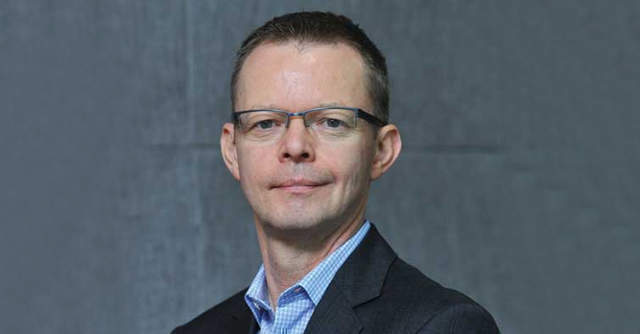
Technology will accelerate transformation in insurance ten-fold: Douglas Kennedy, Aegon Life Insurance


For Mumbai headquartered private insurer Aegon Life Insurance, the core objective of its digital strategy is to simplify the process of selling insurance products and reaching customers through their channel of choice.
“In May 2019, we launched a (PWA) progressive web application that allows our customers to have a full self-service experience for all their post-sales needs. This has proven to be popular, simplifying the experience of dealing with an insurance product,” Douglas Kennedy, the company’s CTO said in an interview with TechCircle.
The insurance company launched a digital insurance ecosystem built fully in the cloud last year using a micro-service, event driven architecture. This has been supported by having a continuous integration methodology using infrastructure as code that fully leverages the power of using the cloud. This has enabled the company to make production changes as and when the need arises.

It introduced a number of low cost insurance products that are now being distributed through ecommerce channels, simplifying the purchase experience and giving people access to products that they traditionally they may not have been able to access.
“Aegon Life Insurance, one of the first to launch an online term plan in India, is looking to bring deep communication and conversational interfaces to its customers through different channels,” Kennedy said.
Earlier known as Aegon Religare Life Insurance Company, it rebranded to Aegon Life Insurance in 2015 when Religare Enterprises sold its 44% stake in the joint venture to Bennett, Coleman and Company, the holding company of the Times Group. The company has been operating in India since 2008.
The process

Aegon Life is split into squads and each squad has its own product owner who is responsible for the core operating domain that they lead. The squads are structured around the core aspects of the business combining business and technology into a single operating unit.
Each squad creates its own themes flowing to epics and then to user stories that are developed and deployed using a continuous integration method.
For example,it has a ‘customer engagement squad’, which is fully responsible for supporting all customers post issuance of any policy. This squad was responsible for the deployment of their first Progressive Web Application (PWA) that helps the customers fully manage their policies through an easy to use mobile application.

This squad will keep continuing to work on features that will further enhance their engagement with customers following their defined agile process, said Kennedy.
The impact of the squad structure using agile ways of working has the effect of breaking people out of their traditional silos. This has meant everyone has had to adapt to new ways of working, broadening their skill sets and understanding that everyone needs to work together in a cohesive manner to be successful, he added.
Kennedy found it interesting how many people from a non-technical background were beginning to understand what lies in delivering a technical solution and vice-versa seeing technical resources having an appreciation of what it means to make business decisions.

“This is important from the fact that every customer is different and should be treated as such. Driving towards that strategy has meant we have needed to look at our entire end to end processes. We have invested heavily in moving towards an agile process where each squad has full autonomy for their respective domain and are responsible for the associated results,” he said.
Current focus, cybersecurity needs and blockchain
Kennedy said the company’s focus now is on transforming their financial system to be able to support the changes needed to support IFRS17, an international financial reporting standard that was issued by the International Accounting Standards Board in May 2017.
At Aegon Life, Douglas believes, “The threats the industry faces are significant as can be seen by depth and breadth of data breaches that are being reported across the globe not just in the insurance industry.”

He believes, many issues go much deeper as a lot of breaches either go unnoticed or unreported. He insists that the threats are not going to go away and like every company protecting their property is a top priority and the correct investments are needed along with building the appropriate culture making everyone fully aware of the risks.
Read: How PNB MetLife, apart from following standard Indian cybersecurity regulations, continuously leverages its global resilient policies and architecture around information, risk and security.
At this point, Aegon Life is not using blockchain but Kennedy said that the company has done some preliminary analysis of possible use cases that they may look to in the future to take forward.

“There is a huge opportunity for the insurance industry to work together for the greater good of our customers by using technologies like blockchain. This can be used in a wide variety of areas like fraud detection or for medical results (with the full permission of the consumer). The opportunity is there and perhaps in India we can take the lead,” he said.
A number of non-traditional companies have moved to the sector, and technology has played a major role in the transformation of the insurance industry. The insurance industry, Kennedy said, has moved a long way in the last few years but that is going to accelerate ten-fold in the coming years.
